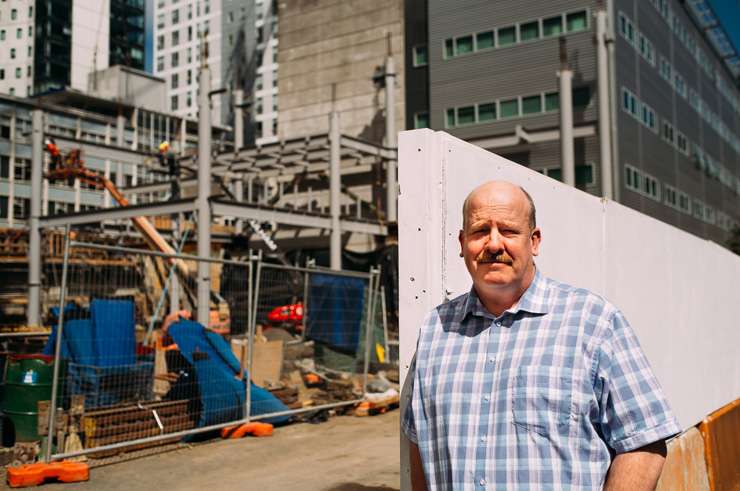Nearly finished apartments, townhouses, and homes appearing on the market could come with unexpected risks, say building industry experts.
Some of the listings on the market are for genuine reasons.
In some cases, vendors are on-selling properties they bought off-the-plan when finance was cheap but which are now unaffordable due to rising interest rates.
In other cases, developers are selling stock they weren’t able to sell off-the-plan.
Start your property search
Some investors even have a strategy of buying off-the-plan and re-selling before settlement, in order to profit from any capital gain in the meantime.
All are perfectly legitimate, and shouldn’t be a cause for concern for buyers.
Where buying a partially completed home becomes risky is when the builder or developer is in financial trouble and work stops. This may not be obvious to the buyers, who then finds themselves with a nearly complete home that they can’t move into or rent out.
Property finder Nick Gentle, who lines up deals for investors, is warning potential buyers to beware. “Anything that isn't finished is another level of risk,” says Gentle, who runs iFindProperty.
Read more:
- Mortgagee auction pain: $1m losses spread to Jacinda Ardern’s neighbourhood
- Bidding wars for defective Wellington homes brings in more than $1m
- New Zealand’s flood devastation: Homeowners left to fend for themselves
“If it's simply a case that [the investor] is now unable to settle and the developer who started the project is finishing the project, that is not an issue with the building,” he says. “The issue is the builder or developer going out of business.”
It’s problematic because buyers will want the guarantees or warranties on the building, says John Tookey, professor in construction management at AUT University. “And a building company isn’t going to want to [certify] a previous builder’s works.” That creates a risk for the buyer.
“There are some good deals to be had, no question,” says Tookey. “But a fair degree of caution needs to be applied. If you want a builder to come in and complete, they will only certify their own works.
“I [would] get a second opinion from a builder or surveyor and ask, ‘Look, are there major dramas associated with this?’. There are degrees of completeness. There is everything except the paint, which is one thing. And then there is literally half-built.” If it’s half-built and exposed to the elements for a lengthy period of time, that could prove problematic in the future, says Tookey.
Malcolm Fleming, chief executive of New Zealand Certified Builders Association (NZCB), says he has engaged with quite a few builders on the topic recently. “The overwhelming sentiment is it’s often a headache, if for some reason, the [original] builder or developer is no longer involved.

Professor John Tookey: “There are some good deals to be had, no question. But a fair degree of caution needs to be applied.” Photo / Supplied
“There's a whole issue there around workmanship that has gone on before and often [a new builder] has to do a whole lot of retrospective work, and work with the council to confirm.
“You have no knowledge of whether [work] has actually been done in accordance to the plan. So that can take a lot of time.”
Gentle recommends doing a bit of sleuthing of your own before buying a nearly complete property. “Look at the current state of the build. A lot of [builds] are behind because of Covid [lockdowns] and for a while you couldn't get materials and consents took forever. Ask yourself if it’s six months behind for reasons such as this, or has nothing happened for six months,” says Gentle.
He suggests driving or walking by the building site to see what is happening. “Do a Google search on the developer and look at their Facebook page. I’d be looking for comments on their posts from upset buyers,” he says.
“You can [also] ask real estate agents for information. They have a code of conduct that protects their buyers. I would be having a conversation with my lawyer about protecting my deposit [as well].”
If the builder or developer walks away, there is often a problem finding a replacement, although guarantees such as Halo from New Zealand Certified Builders or Master Builders will help with finding replacements.
If not, the delays could be even more lengthy. “Builders never want to take on a half built home. The [previous builder] may have cut corners for the last six months,” says Gentle. “For buyers, the [first] builder is only as good as the council inspections.”
What’s more, work is still plentiful for builders, post-Cyclone Gabrielle, meaning they may not want to take on more problematic jobs.









































































